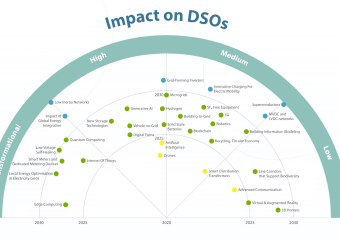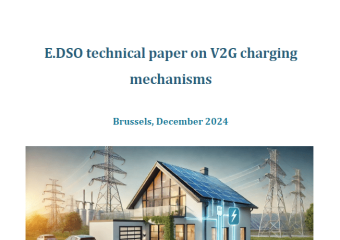EDSO amendments on Buildings Directive
Electric vehicles are growing in importance and are adding new loads to distribution networks. EDSO fully supports the development of electro-mobility, as DSOs are key enablers of e-mobility and flexibility markets, and we welcome the Directive’s provisions to promote the electric vehicles’ integration within new building infrastructure.
However, concerning the provisions in Article 1, we believe that at this stage ducts (pre-tubing) for recharging points in residential building structure is the most cost-effective way for incentivising customers’ switch to electric vehicles. This requirement should also be applied to non-residential buildings, since an obligation to equip parking spaces with recharging points that have smart charging capabilities would lead to onerous costs and burdensome complexity both for buildings owners and network operators.
Any future legislation on electro-mobility related to energy efficiency and buildings efficiency must be aligned with the dedicated Directive on alternative fuels infrastructure (2014/94/EU), which introduces definitions for recharging points and their operations.
The introduction of a smartness indicator may play a role as an additional instrument to empowering consumers. We suggest that DSOs are also involved in an open consultation with stakeholders on defining the exact implications of the indicator.






